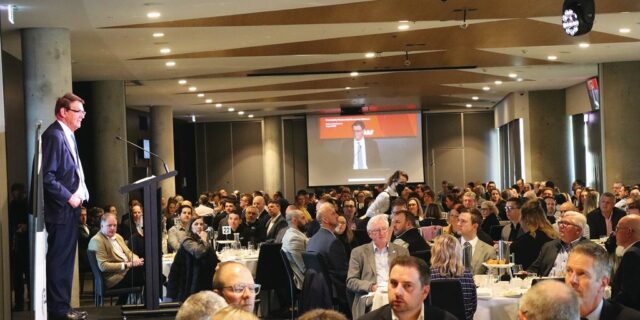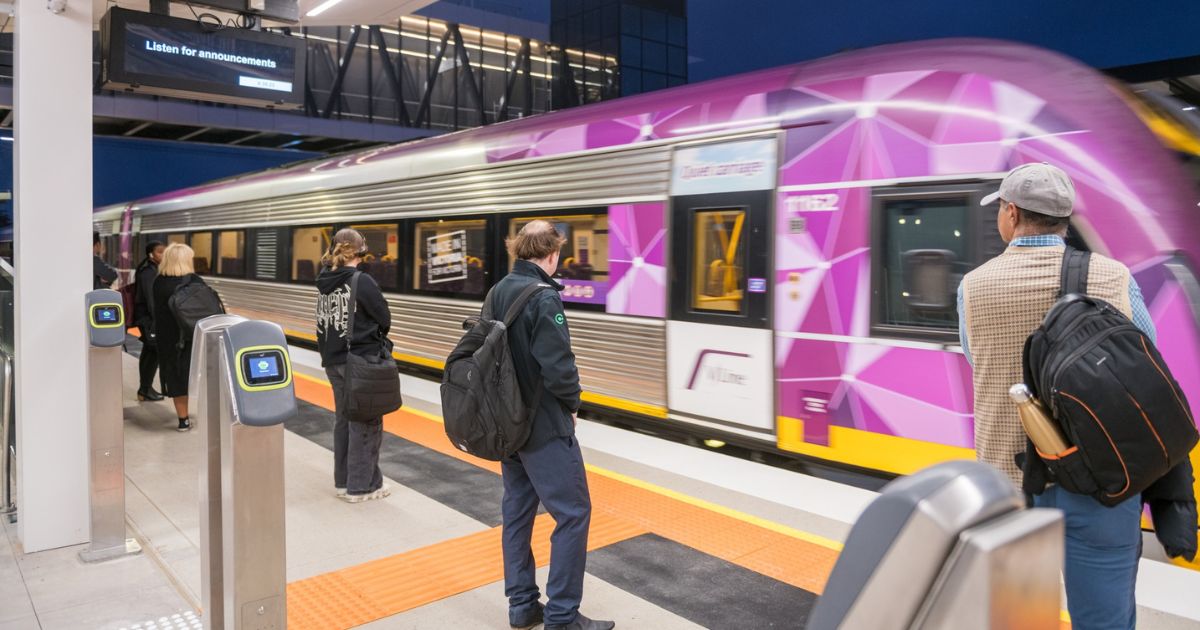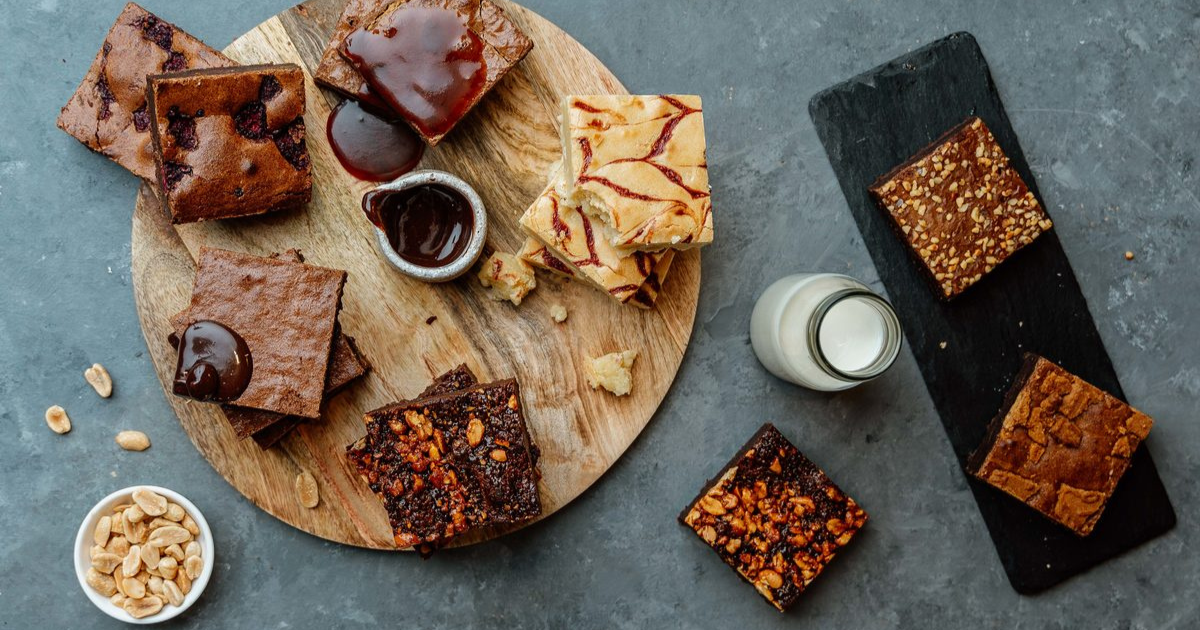Bill Evans talks economics over breakfast

Westpac chief economist Bill Evans speaks at the 2022 Westpac Economic Breakfast. Photos: JAMES TAYLOR
GEELONG’S population growth is holding up very well compared to not only Victoria but also Australia, according to the latest update from Westpac expert Bill Evans.
The bank’s chief economist has been presenting his thoughts and forecasts each year at the Westpac Economic Breakfast in Geelong for about two decades, and did so again on Wednesday last week in front of a crowd of nearly 400 people at GMHBA Stadium.
At the event, presented by the Geelong Chamber of Commerce, Mr Evans said “the population story in Geelong is really outstanding”.
He displayed a slide showing Geelong’s annual population growth held at about 3 per cent from 2016 to 2019 while Victoria’s growth fell and Australia’s remained static.
Although Geelong’s growth was slower in 2020 and 2021, at 2.5 per cent, it was well ahead of Victoria’s, which nosedived from about 2.0 per cent in 2019 to nearly -1.0 per cent in 2020, and Australia’s, which also plunged from about 1.5 per cent in 2019 to just above zero in 2020.

“You don’t know what’s going on in the rest of Australia. You don’t know the losses of people and the collapse of population growth that we’re seeing starting to erode in Melbourne – Geelong’s population has held up remarkably,” Mr Evans said.
“Of course, during COVID, you had this big lift and you managed to keep up that growth in the past couple of years.
“That would suggest housing availability here must be even tighter than we’re seeing in, say, Melbourne. So that’s another challenge, but it’s good for your economy.”
Mr Evans said the annual change of dwelling prices peaking in Geelong at 36 per cent in 2021 was “unbelievable”.
“You’re still running at 6 per cent [today], so there’s been a big slowdown, but you’re running a lot better than Ballarat and Bendigo; they peaked at much lower rates… and Melbourne is in negative territory.”
Mr Evans opened his speech with some remarks about inflation, which “we haven’t seen like this in a long, long time”.
“It’s really about inflation – it’s about where inflation goes from here and how hard it’s going to be to contain inflation from here.”
He said inflation had occurred in three stages, with Australia now experiencing the third:
- The first, COVID-19 – “People were locked up, they would spend online so they could buy goods, and they were given a lot of money by the government… people would buy goods, but it was very very hard for them to receive them – ship factories were closed and container costs went up by a factor of five” – but those forces were starting to ease
- The second, the war in Ukraine – “It was about energy and it was about food… when the Russian troops gathered on the border, Brent crude was $60 a barrel. The smarties realised that this was going to be an issue, and it eventually got up to about $120 [a barrel]. But when the petrol price [in the US] got to $5 a gallon, people really didn’t stop driving, so we’ve had a big turnaround in demand” – and those forces were also easing
- The third, inflationary expectations – “People are starting to believe inflation is going to remain high, and they’ll act accordingly. Unions will want a bigger pay rise, and businesses will have to start raising their prices” – which was an issue central banks would have to counter by slowing the economy down and “getting inflation psychology out of the system”.

















